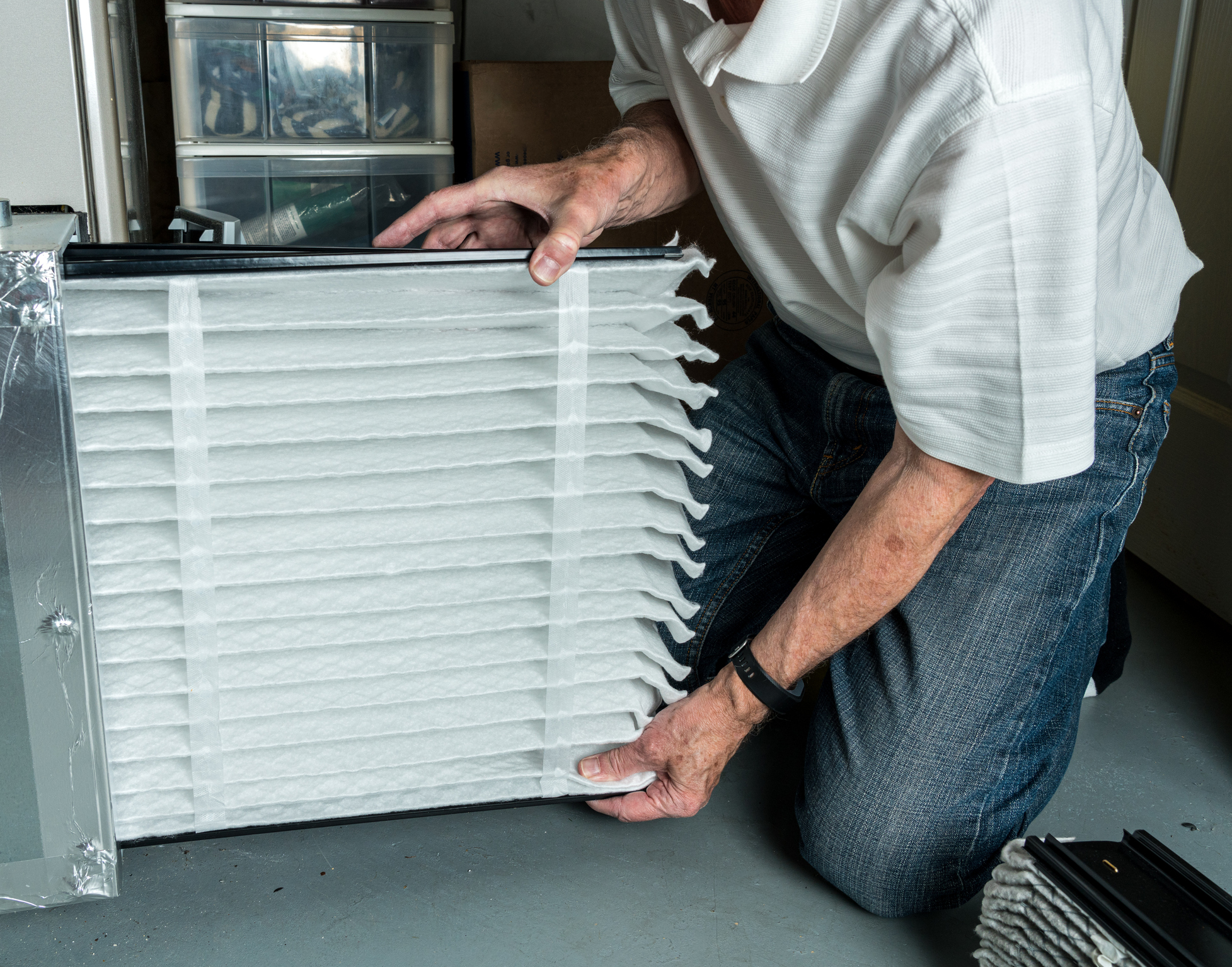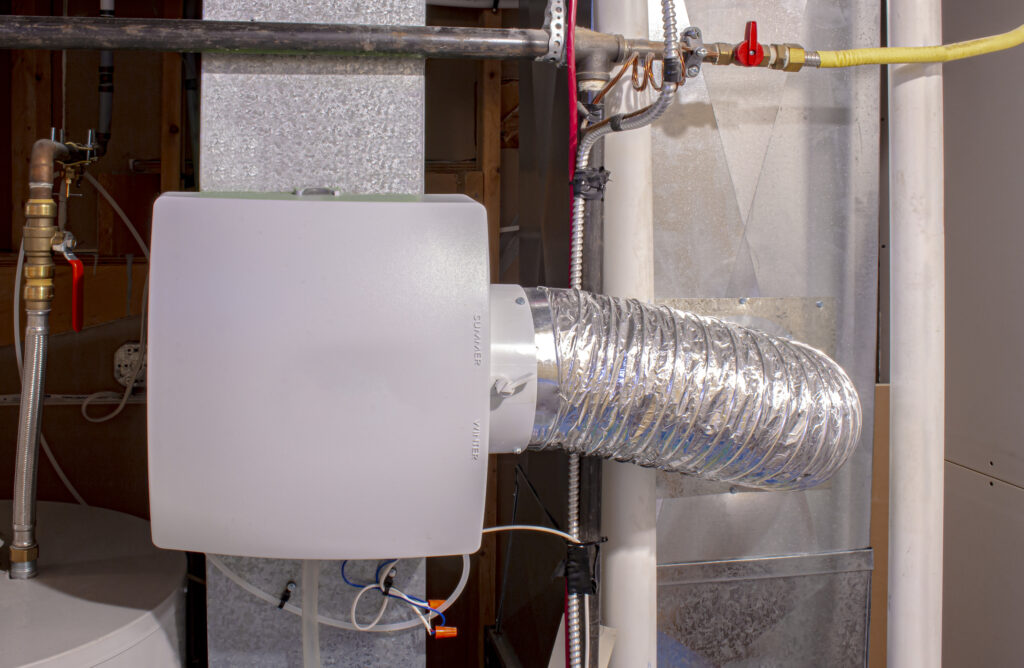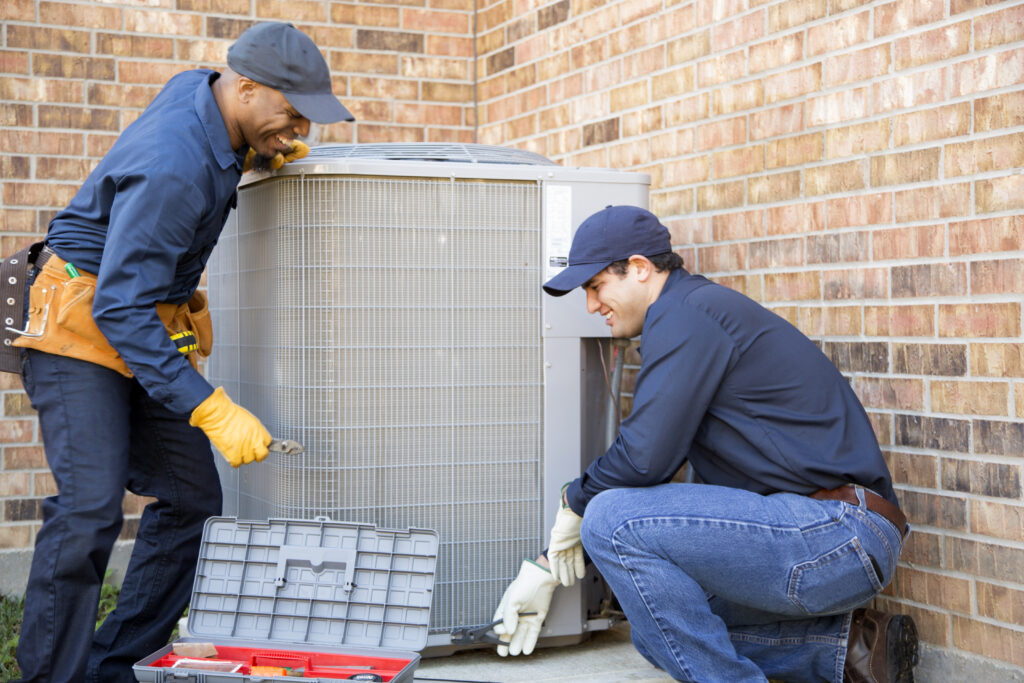When the air in your home feels dusty or your system is struggling, an overdue air filter change may be the reason. Air filters help to protect your heating and cooling system and improve your indoor air quality. If you have ever wondered how long air filters last or when to replace yours, we’ll tell you everything you need to know.

Typical Lifespans of HVAC Air Filters
Most standard air filters last between 30 and 90 days. Many older systems use thin fiberglass filters, which you need to change every month. Higher-efficiency pleated filters can last up to three months. Some premium options or whole-home filtration systems can go as long as six months before replacement.
Pay extra attention to your filters during spring and fall when pollen and humidity levels fluctuate. Homes with pets, allergy sufferers, or smokers need more frequent filter changes to keep indoor air clean and systems running efficiently.
Factors That Affect How Long Air Filters Last
Several conditions determine how often you need to schedule an HVAC filter replacement in Pennsylvania. The size of your home and how many people live there directly influence how quickly filters collect dust, hair, and dander. Homes with pets experience faster buildup because of shedding and dander. If you live near construction zones, farmland, or busy roads, airborne debris can quickly fill up your filter.
The cold winters and humid summers in Bucks and Montgomery counties cause HVAC systems to run more often, which shortens filter life. The filter type also matters; thicker, higher-MERV filters trap finer particles and may need replacement sooner because they collect more contaminants. Checking your filter once a month helps you stay ahead of problems and keep airflow strong.
Signs It’s Time to Replace Your Air Filter
If you’re unsure when to change your furnace filter in Pennsylvania, these clear signs can help. When the filter looks gray, dusty, or clogged, it can’t do its job anymore. Weak airflow, which causes uneven heating or cooling, also points to a dirty filter. Rising energy bills signal that your system is working harder than it should.
Allergy symptoms often worsen when dust and pollen circulate freely through a clogged filter. Strange odors or wheezing sounds from vents may indicate restricted air movement. Replacing the filter as soon as these issues arise will help restore airflow and improve air quality.
Why Regular Filter Changes Matter
When you replace your air filter on a regular basis, it helps to protect your system and your budget. A clogged filter forces your system to work harder, which can lead to motor strain and premature breakdowns. It can also cut your energy efficiency by as much as 15%, which will increase monthly bills. Clean filters support healthier indoor air by trapping dust, pet dander, mold spores, and pollen before they spread through your home. For household members with allergies or asthma, keeping filters clean makes a noticeable difference in comfort and overall health.
How to Choose the Right Air Filter for Your PA Home
Choosing the right air filter will depend on your needs and your system design. Most homes perform best with an air filter with a minimum efficiency reporting value (MERV) of 8 to 13. This will balance airflow and filtration.
Fiberglass filters tend to cost less, but they capture only large particles. Pleated filters trap more dust and allergens. High efficiency particulate air (HEPA) filters provide the highest filtration levels but require systems designed for that airflow resistance. Washable filters give you reusability, but they must be frequently cleaned and dried to prevent mold growth. Our team can confirm which filter type and size match your equipment, so your system can stay efficient and reliable throughout the year.
Air Quality & Maintenance Services From Dowd HVAC
Dowd HVAC will help you keep your system efficient with our air filter maintenance guide. Our team will inspect your system to confirm proper airflow and recommend upgrades for cleaner air. If your home struggles with dust, odors, or humidity, we can evaluate your air quality. We will suggest advanced options that may work for your home, like whole-home filtration or UV purification. We also include furnace cleaning, safety checks, and airflow balancing during regular maintenance visits to make sure you experience long-term comfort and system performance.
Keep Your Air Filters Fresh With Dowd HVAC
Air filters may seem small, but they play a major role in your home’s comfort and energy efficiency. Whether you need to set a replacement schedule or want a complete air filter maintenance guide, Dowd Heating & Air can help. We have been providing heating and cooling services to Bucks and Montgomery counties since 1997.
Call us today to schedule your HVAC filter replacement.




